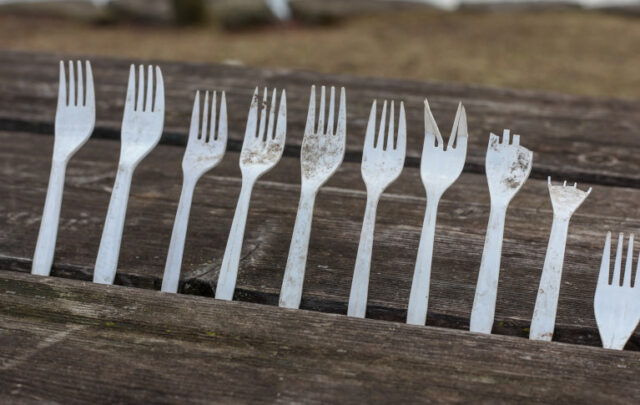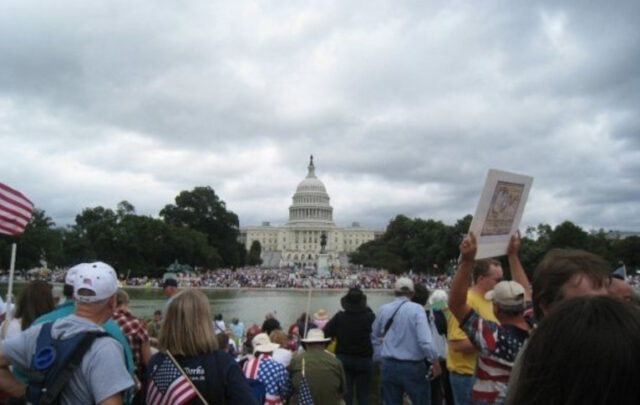Last week, while reading this article in Yale Climate Connections on how climate change affects mental health, I tripped over Joanna Macy’s wisdom once again. One interviewee, psychotherapist Linda Buzzell, described Macy’s three-part prescription for getting through the Great Turning, which was important for Buzzell to keep herself from burning out. The description was brief, but intriguing, so of course, I had to go back to the source.
In Active Hope, Joanna Macy and Chris Johnstone argue that there are three dimensions of our ‘Great Turning’—the transition to a sustainable future, rather than just accepting collapse or the ‘Great Unraveling,’ or denying that we’re in a transition at all (the three possible stories we can tell ourselves about the future).
The first dimension consists of “holding actions,” that is, efforts to slow down the damage of our current ecologically-destructive consumptive society. In essence, saving what we can of Earth and biodiversity and “caring for those that have been damaged” by “the unraveling of our social fabric.” While essential, these are defensive acts, as Macy and Johnstone explain. “For every acre of forest protected, many others are lost,” and therefore will never, alone, get us to a Great Turning.
The second dimension is one of “Life-sustaining systems and practices.” These are the efforts to transform our cultures to reorient them on sustainability instead of consumerism and growth. I’ve explored this dimension for years and they occur on a vast array of scales, from the micro- to the macro-, from developing a local community garden (or a local Gaian group), to developing a sustainability-oriented middle school, to adding Earth’s rights to a national constitution—all important and valuable cultural transformations. But as Macy and Johnstone note, “these new structures won’t take root and survive without deeply ingrained values to sustain them.”
The Third Dimension
Cultivating and sustaining these values is the third dimension, the “Shift in Consciousness.” In the Yale article, Buzzell described it this way: “Raise your level of consciousness. And that could be getting more scientific information, or it could be doing some kind of consciousness practice like meditation or perhaps spending time by yourself alone out in nature.”
That might have oversimplified Macy and Johnstone’s point a bit, but it’s what got me reflecting on this, reading it the same week I offered a new Gaian meditative practice to the community, and locking myself into a somewhat (and intentionally, I should add) disruptive daily routine!
Here’s some of what Macy and Johnstone write on the third dimension:
What inspires people to embark on projects or support campaigns that are not of immediate personal benefit? At the core of our consciousness is a wellspring of caring and compassion; this aspect of ourselves – which we might think of as our connected self – can be nurtured and developed. We can deepen our sense of belonging in the world. Like trees extending their root systems, we can grow in connection, thus allowing ourselves to draw from a deeper pool of strength, accessing the courage and intelligence we so greatly need right now. This dimension of the Great Turning arises from shifts taking place in our hearts, our minds, and our views of reality. It involves insights and practices that resonate with venerable spiritual traditions, while in alignment with revolutionary new understandings from science.
We take part in this third dimension of the Great Turning when we pay attention to the inner frontier of change, to the personal and spiritual development that enhances our capacity and desire to act for our world. By strengthening our compassion, we give fuel to our courage and determination. By refreshing our sense of belonging in the world, we widen the web of relationships that nourishes us and protects us from burnout. In the past, changing the self and changing the world were often regarded as separate endeavors and viewed in either-or terms. But in the story of the Great Turning, they are recognized as mutually reinforcing and essential to one another. [emphasis added]
For me, that is at the heart of this Gaian endeavor. To cultivate a philosophical system that builds connection—with Gaia, with fellow Gaians, and with our broader communities, and with our best selves—along with spiritual practices that cultivate and reinforce these connections. I hope the relationships we build with Gaia, with each other, and with the extended community can strengthen us, “protect us from burnout,” and thus allow more energy for holding actions and for systemic change (which I think Gaians, being nurtured by their community, could take leading roles in, and which could then cultivate more and deeper relationships in the process).
The Fourth Dimension?
Finally, this all got me thinking whether there might be a fourth dimension of change as well. I admit I can no better grasp the fourth dimension in physics terms than a Flatlander can, as this video by Carl Sagan reminds me.

While we can’t grasp the fourth dimension, the tesseract is how we would see the shadow of a 4D cube in three dimensions.
But in this case the fourth dimension could simply be time. Our culture exacerbates time stress in myriad ways—from obsession with aging and mortality, to “buy now” advertising and constant tech upgrades, to poorly communicated environmental warnings like we have just “12 years to limit climate catastrophe.” But truthfully this may all be counterproductive and anxiety-producing, and frankly, is just wrong. The window to “save the planet” probably closed 40 or 50 years ago, at least in terms often meant by that: big coastal cities not being lost to the sea, no great die offs of humans or other species, no lost coral ecosystems, and so on. We’re entering a time—especially with the youngest generations—when they can no longer be driven by this ‘sense of urgency’ so aggressively cultivated in our cultures.
Instead, we need to look at this as a lifelong journey (or even our own personal hero quests) rather than a sprint. And as we embark on these journeys, we have to ask ourselves: How, over the course of my lifetime, will my actions, my relationships, my work, and words help in healing Gaia? What does the story of my life tell about how I connected with Gaia and with others—no matter how short or long? Did I live my life as a taker, to paraphrase Daniel Quinn, or did I help to bring about the Great Turning in any way (large or small) that I could?
In that process, we must also recognize that the only scale to measure this should be oriented on you—on your position in society (a farmer has a different metric than a politician, though that doesn’t mean a farmer can’t become a politician or vice versa). And it doesn’t mean that if you take hundreds of small actions day after day over the course of your life that makes you less valued or loved of Gaia than someone who has had the opportunity to take big actions (though it also doesn’t mean you can excuse yourself from taking the big actions available to you if you take little ones). Jesus said it best when he compared the large temple offerings of the wealthy to the far more generous gift of two small copper coins that the poor widow made. “This poor widow has put in more than all the others. All these people gave their gifts out of their wealth; but she out of her poverty put in all she had to live on.” (Luke 21: 1-4)
Ultimately, it comes down to this:
Do what you can, supported as much as you can be, so you can keep doing what you can, over as long a time as you have.
That might be the simplest formula for sustaining our well-being in the Great Turning, even if it does feel like more of a Great Unraveling at this stage. In decades, or maybe centuries, if we keep at it and use this time now to spark others to act as well, we may truly reach the Great Turning stage of the transition.





